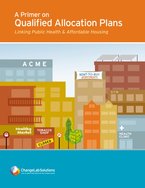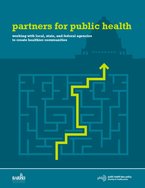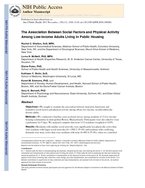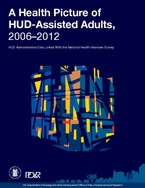Found 14 resources.
0
0
0
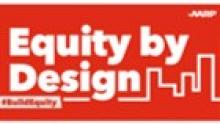
Play is not only beneficial but essential for people of all ages. Today, there is increasing interest in the benefits of not only play itself, but specifically people from younger and older generations playing together. The built environment in our communities plays a critical role in facilitating this intergenerational engagement and play. Approaches such as Intergenerational Contact Zones (ICZs) introduce strategies for promoting social inclusion and belonging, employing novel ways of planning and designing public spaces to create intergenerationally enriched environments that provide...
Topics: Community development, Dual-generation, Exercise, Health, Seniors, Youth
 Shared by Sandra Ware
on Jun 8, 2023
Shared by Sandra Ware
on Jun 8, 2023 0
0
0
Getting regular exercise can be a challenge, but there are many positive benefits, particularly for
people with diabetes.
Topics: Exercise, Health, Healthy homes, Nutrition
 Shared by Gabe Castro
on Sep 23, 2022
Shared by Gabe Castro
on Sep 23, 2022 0
0
0
The Effects of ‘Food Deserts’ on Public Housing Residents Living with Diabetes
Topics: Energy, Exercise, Health, Healthy homes, Mobility, Nutrition
 Shared by Gabe Castro
on Sep 23, 2022
Shared by Gabe Castro
on Sep 23, 2022 0
0
0
Public housing residents are more likely than urban residents not living in public housing to have high rates of obesity and smoking and low rates of physical activity. This study assesses whether adding environmental interventions at public housing developments affects residents’ health-related habits and body mass index.
Topics: Exercise, Health, Housing, Low-income, Obesity, Research
0
0
0
To encourage architects and planners to design built environments that promote physical activity, New York City offers an “active design” building incentive within the Leadership in Energy and Environmental Design (LEED) standards. The Centers for Disease Control and Prevention (CDC) recommends that adults ages 18 to 65 engage in 150 minutes of moderate-intensity physical activity (MPA) or 75 minutes of vigorous physical activity (VPA) per week to reduce risk of disease and promote a healthy lifestyle, but in 2011, only 20 percent of Americans met these goals. Active design interventions...
Topics: East Coast, Exercise, Health, Housing, Low-income, Place-based, Preventative care, Research
0
0
0
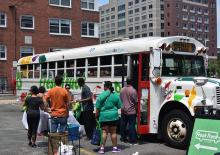
Health promotion interventions in public housing communities have the potential to reduce obesity among residents, a new study shows. Changes in their environment, such as fresh food trucks, walking groups, screenings, and cooking demos, helped Boston residents eat better and get more exercise.
Topics: East Coast, Exercise, Food insecurity, Health, Housing, Low-income, Nutrition, Obesity, Research
 Shared by Housing Is
on Jul 27, 2018
Shared by Housing Is
on Jul 27, 2018 0
0
0
SAHF members believe that connecting residents of affordable housing with needed supports – such as educational resources or health services – can help vulnerable families and seniors achieve
a better quality of life. SAHF began the Outcomes Initiative to create a common framework for its members to demonstrate with data the impact on residents of providing housing-based services and support in the five key areas listed below.
Topics: Asset building, Cost effectiveness, Dual-generation, Education, Exercise, Food insecurity, Health, Housing, Mental health, Metrics, Nutrition, Safety, Stability
 Shared by Housing Is
on Jul 26, 2018
Shared by Housing Is
on Jul 26, 2018 0
0
0
This report is intended to help public health advocates and policymakers formulate input into the QAP process, with the objective of developing healthier homes. We describe the rationale for including a wide range of public health-related criteria in QAPs, identify and describe QAP criteria that can have a positive impact on public health, and suggest how public health advocates can get involved in revising their state QAPs.
Topics: Exercise, Funding, Health, Legislation & Policy, Low-income, Place-based, Safety, Smoke-free
 Shared by Housing Is
on Jul 13, 2018
Shared by Housing Is
on Jul 13, 2018 0
0
0
This guide is intended to provide information to public health department staff and advocates about the many public agencies that make policy decisions and implement projects related to the physical environment.
Topics: Child welfare, Community development, Education, Exercise, Green, Health, Housing, Legislation & Policy, Place-based, Safety, Smoke-free, Stability, Substance abuse, West Coast
 Shared by Housing Is
on Jul 13, 2018
Shared by Housing Is
on Jul 13, 2018 0
0
0
We sought to examine the association between structural, functional, and normative social factors and physical activity among urban, low-income, racially/ethnically diverse adults.
Topics: Exercise, Health, Housing, Low-income, Obesity, Research
 Shared by Housing Is
on Jul 12, 2018
Shared by Housing Is
on Jul 12, 2018 0
0
0
Topics: Child welfare, Dental, Early childhood, Education, Exercise, Family engagement, Health, Housing, Medicaid / Medicare, Mental health, Nutrition, Partnerships, Place-based, Preventative care, Seniors, Vision
 Shared by Housing Is
on Jul 12, 2018
Shared by Housing Is
on Jul 12, 2018 0
0
0
In Boston, Massachusetts, the Boston Housing Authority, Boston Public Health Commission, the city’s Inspectional Services Department, the Boston Foundation, and local universities and medical institutions have come together over the last decade-plus to address the intersection of health and housing. Motivated by a desire to improve the lives of Boston’s most vulnerable residents, these organizations began collaborating to address asthma and, more recently, to prioritize housing and health needs for pregnant women. By bridging anchor institutions, foundations, and city agencies around health...
Topics: Asthma, Child welfare, Dual-generation, Early childhood, East Coast, Exercise, Family engagement, Funding, Health, Home visiting, Homelessness, Housing, Low-income, Medicaid / Medicare, Nutrition, Obesity, Partnerships, Pre-natal, Preventative care, Research, Smoke-free
 Shared by Housing Is
on Jul 12, 2018
Shared by Housing Is
on Jul 12, 2018 0
0
0
A Research Review and Comment on Future Directions for Integrating Housing and Health Services
Topics: Affordable Care Act, Cost effectiveness, Data sharing, Exercise, Health, Homelessness, Housing, Low-income, Medicaid / Medicare, Mental health, Metrics, Nutrition, Obesity, Partnerships, Preventative care, Research, Supportive housing
 Shared by Housing Is
on Jul 11, 2018
Shared by Housing Is
on Jul 11, 2018 0
0
0
Unprecedented descriptive analysis linking HUD administrative data and results from the National Health Interview Survey (pre-Affordable Care Act)
Topics: Affordable Care Act, Cost effectiveness, Dental, Depression, Exercise, Health, Healthy homes, Housing, Medicaid / Medicare, Mental health, Nutrition, Obesity, Research, Seniors, Smoke-free, Substance abuse
 Shared by Steve Lucas
on Jun 22, 2017
Shared by Steve Lucas
on Jun 22, 2017 
